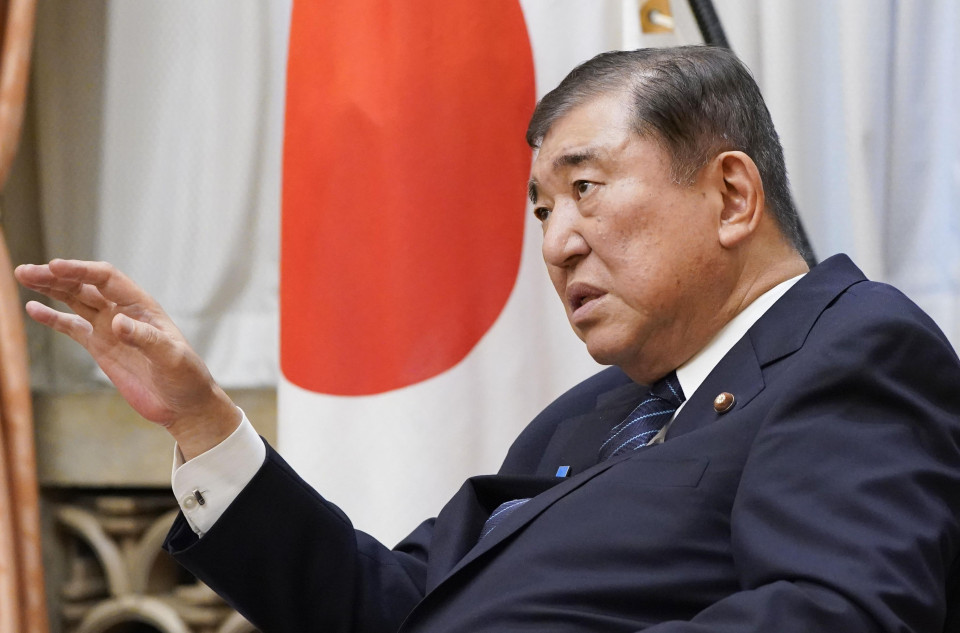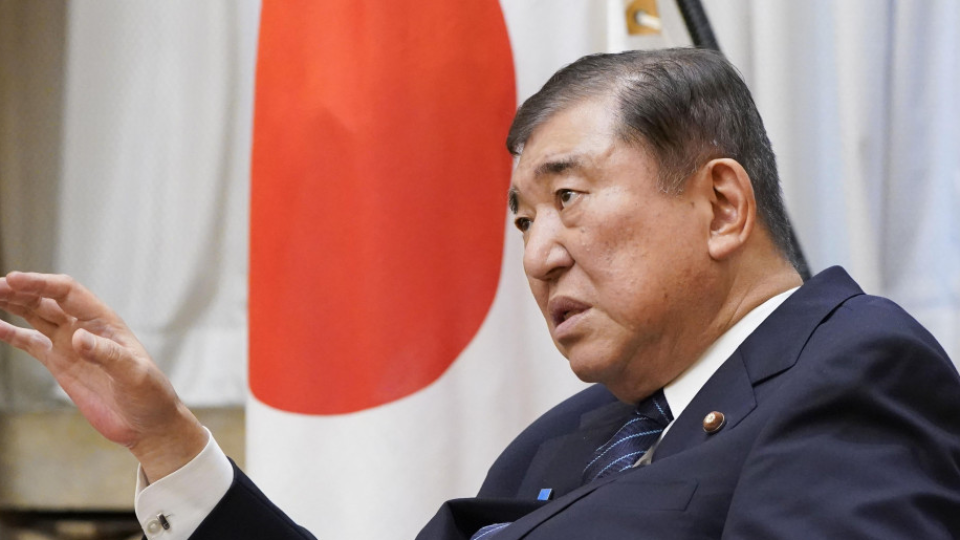Prime Minister Shigeru Ishiba said Sunday he will consider what will be “the most appropriate” framework for his coalition government after a crucial election next month for the House of Councillors where his ruling coalition is seeking to retain its majority.
In an interview with Kyodo News, Ishiba called securing a majority of the 248-member upper chamber a “must-attain” goal but said it is not an easy task, at a time when conservative supporters are increasingly looking to alternatives to his Liberal Democratic Party.
He declined to say how he intends to take responsibility should the LDP and its junior coalition partner, the Komeito party, fail to keep the upper house. In a weekend Kyodo News poll released Sunday, half of respondents said they do not want the ruling camp to remain in control of the chamber.
Official campaigning for the July 20 election is set to begin Thursday, providing voters an opportunity to deliver a verdict on Ishiba’s minority government, which lost its majority in the more powerful House of Representatives last October.

Japanese Prime Minister Shigeru Ishiba gives an interview at his office in Tokyo on June 29, 2025. (Kyodo) ==Kyodo
The poll comes at a time when voters are grappling with protracted inflation, most recently exacerbated by soaring rice prices, stagnant real wage growth, and economic uncertainty stemming from U.S. President Donald Trump’s tariff policy.
“It’s far from a low hurdle to clear,” Ishiba said in the interview, referring to the goal of retaining a majority.
A total of 125 seats will be up for grabs in the election — half of the upper house, or 124, plus one to fill a vacancy. It will be the first nationwide parliamentary election since Ishiba’s ruling coalition lost control of the lower house.
Regarding the shape of his future government, Ishiba said, “I will look at the political situation and consider what is most appropriate.”
Some within the ruling camp are calling for expanding the ruling coalition to make the running of the government smoother.
“I will do all that I can to ensure our candidates win their seats in the election. It’s not the right time to discuss what I would do (after the election),” he said.
Ishiba has ruled out inviting an opposition party to join the ruling coalition merely because they agree on “one or two” policy agenda items. Yoshihiko Noda, who leads the Constitutional Democratic Party of Japan, the major opposition, said during a forum on Sunday, “We won’t form a coalition based solely on one issue.”
The ruling coalition had to take heed of demands from the opposition camp to pass bills and budgets in the just-ended regular parliamentary session.
Political parties are seeking to woo voters with their focus on easing the pain felt by households of inflation, which used to be a rarity in deflation-mired Japan but has pronounced in recent years, partly due to a weak yen that boosts the prices of imported goods such as energy and food.
Ishiba’s LDP is contrasting with opposition forces that are promising tax cuts to help struggling households. While the ruling party is negative about cutting the consumption tax, it is seeking to distribute cash handouts.
The recent surge in rice prices, which roughly doubled from a year ago, has led to growing public frustration over how Ishiba’s government initially handled the spike caused by a poor harvest.
Under new farm minister Shinjiro Koizumi, the government began to sell its rice reserved for emergency use directly to retailers in a bid to substantially lower prices of the staple food.
While the government no longer limits the acreage for rice production as a policy, it sets output targets.
Ishiba told Kyodo News during the interview that the government must draw up a new policy to reward rice producers.
The prime minister also touched on ongoing tariff negotiations with the United States, after he and Trump failed to reach a deal earlier in the month.
Ishiba said he wants to explore cooperation with the United States in the fields of aircraft and ship-building for the benefit of both nations without going into detail.
On regional revitalization, a priority policy item for Ishiba, the prime minister said the government will compile a package by the end of the year to push for local development led by the private sector.
Related coverage:
50% want Japan ruling bloc to lose upper house majority: Kyodo poll
Japan wrestling with U.S. tariff talks as July deadline looms
